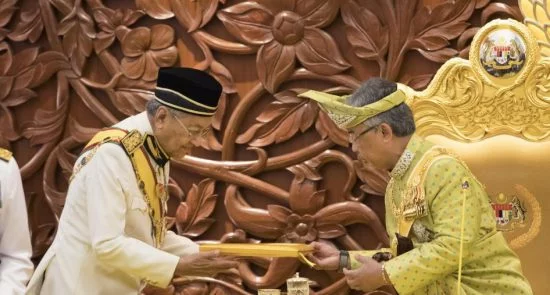Human rights April 6, 2019
Short Link:Malaysia: Don’t Quit International Criminal Court
Malaysia’s decision to withdraw from the International Criminal Court (ICC) barely a month after joining makes a mockery of the government’s commitment to justice, Human Rights Watch said today.
Ariana News Agency-
On April 5, 2019, Prime Minister Mahathir Mohamad announced that because “certain quarters [had] criticized the issue,” the cabinet had decided to “avoid political confusion” and withdraw from the court’s Rome Statute.
“By quitting the ICC, Malaysia’s government is undermining its credibility on human rights reforms,” said Phil Robertson, deputy Asia director. “Rather than stand up for justice, the government caved to pressure from former ruling parties and certain hereditary rulers.”
When Malaysia acceded to the Rome Statute on March 4, Foreign Minister Saifuddin Abdullah declared Malaysia’s commitment “to combating international crimes for global peace and security,” saying that “Malaysia stands ready to work with all state[s] parties in upholding the principles of truth, human rights, rule of law and accountability.”
In the ensuing weeks, the opposition alliance of the United Malay National Organization (UMNO) and Parti Islam Se-Malaysia (PAS) criticized the government, alleging that joining the ICC would harm the rulers and Malaysia’s sovereignty.
The crown prince of Johor state alleged that the government had not consulted the hereditary rulers, and said the king could face prosecution for war crimes “orchestrated” by individuals seeking to damage the royalty.
These criticisms reflect a fundamental misunderstanding of the role and practices of the ICC. The ICC is a court of last resort, and only steps in when national authorities are unable or unwilling to deliver credible justice for the grave international crimes under the ICC’s jurisdiction.
This latest reversal on human rights follows the government’s backtracking on its pledge to ratify the International Convention on the Elimination of All Forms of Racial Discrimination and its decision in November 2018 to lift a moratorium on using the draconian colonial-era Sedition Act.
“The Malaysian government’s standing on international justice has taken a nosedive because of misleading and unpersuasive criticism of the ICC,” Robertson said. “Unless the government stands firm on its original decision to join the ICC, it will be putting its whole human rights reform agenda at risk.”










